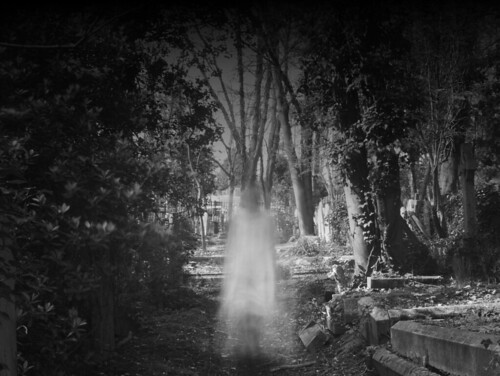Communing with ghosts
January 16, 2024
What are the hallmarks of a successful ghost story? The masterful ones are almost always founded in psychology. The ghost’s arrival usually coincides with a mental crisis in the protagonist’s life and the ghost usually affects a change in the person who has experienced the supernatural.
In Henry James’s “The Jolly Corner,” an American returns to New York after 33 years and wonders if he has made a mistake in living abroad so long. He’s determined to meet the man he would have become if he had stayed at home. When he at last corners the spectre of what he might have become, the sight is so hideous that he faints. When he is found at daybreak by Alice Staverton, the devoted friend from his youth, it finally dawns on him what this woman means to him. Of the glaring, disfigured ghost Brydon tells her, “He has a million a year. But he doesn’t have you.”
In A.M. Burrage’s lesser-known masterpiece, “Playmates,” communing with ghosts also changes the character for the better. A misanthropic bachelor who treasures his solitude takes on the care of a joyless young girl who begins to play with “imaginary friends” when they move to an old country house. While the ghost-children are a comfort to the girl in her time of loneliness, the local Vicar believes the girl would develop a gift that might eventually harm her if she continued to see and converse with “wretched souls.” The bachelor makes arrangements to send the girl off to school, but when she leaves, he begins to feel shy little presences in the empty house. “Don’t be afraid,” he whispers to the ghosts, “I’m only a very lonely man. Be near me after Monica is gone.”
But in James’s “The Turn of the Screw,” an insecure young governess, is undone by her experience, causing the death of one of her charges by her hysterical insistence on the presence of the ghosts. In Chekhov’s “The Black Monk” too, an exhausted young scholar, (“Andrey Korvin, MA”) is bewitched by a monk in black robes who floats across the landscape to soft-talk him into what he must do next. The murmurings of the black monk destroys the happiness of the loving family Kovrin has married into, and finally destroys Korvin. (“The monk floated past and stopped in the middle of the room. ‘Why didn’t you trust me?’ he asked reproachfully, looking affectionately at Kovrin. ‘if you had trusted me when I told you that you were a genius, you wouldn’t have spent these two years so miserably, so unprofitably.’”
A really effective ghost story rests solidly within the purview of the stuff of real life, the grounding details of everyday routines. Henry James, who liked to speak of “the terrors of the cheerful country home,” said that a good ghost story must be “connected at a hundred points with the common objects of life.” In the stories cited above there are houses and furniture and routines and a specific milieu.
Gail Godwin, What Makes a Ghost Story Effective?
